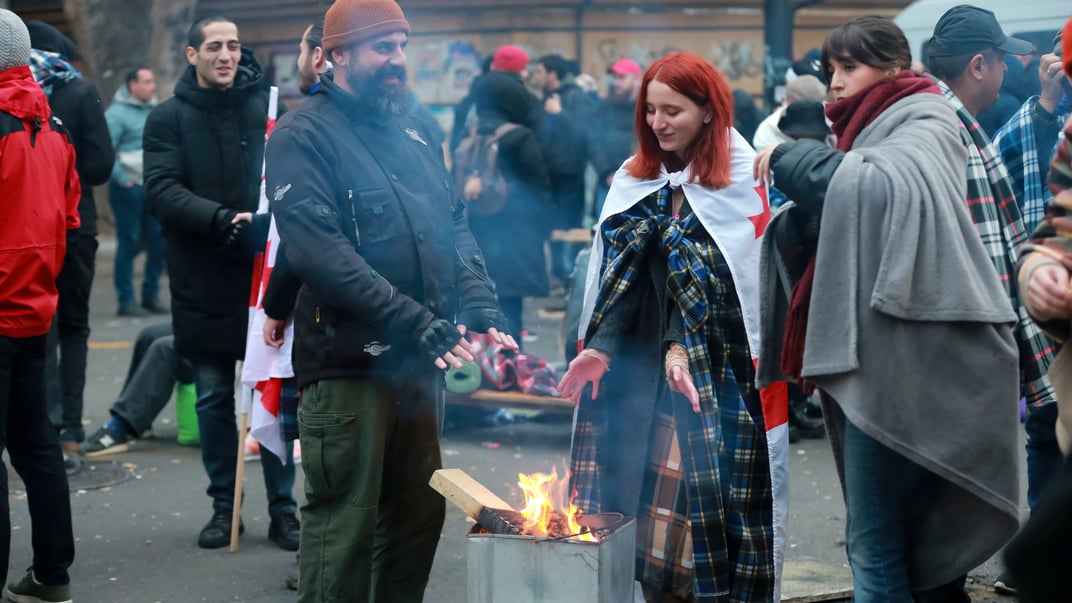Opposition in Georgia has launched a permanent street protest demanding new elections (PHOTO).

This is reported by Jam News and “Echo of the Caucasus”.
Since the evening of November 17, the center of Tbilisi has been blocked by tens of thousands of people. Near Tbilisi State University, protestors set up more than 20 tents.
Some activists spent the night in tents on Chavchavadze Avenue, while others gathered around a fire on the street.
“Tonight has become one of the iconic nights of protest in recent years... Ahead lies a long and tireless struggle for the return of our Homeland,” said Nika Gvaramia, one of the leaders of the “Coalition for Change,” in his address.
According to media reports, throughout the night in central Tbilisi, “euphoria reigned.” Organizers distributed coffee, tea, blankets, tents, set up bio-toilets with sinks and soap, and strictly prohibited alcohol.
The united opposition in Georgia promises that the protests will continue around the clock and cover the entire country. Additionally, four opposition political forces have reached out to the foreign ministers of EU member states with a significant letter, urging them to “support the historic struggle of the Georgian people to save democracy in Georgia.”
Election in Georgia
On October 26, parliamentary elections were held in Georgia. According to the count of 99.9% of the votes, the “Georgian Dream” party, which has been in power until now, won. It received only 53.93% of the voters' support.
However, just the day before, opposition Georgian political forces announced that they would not recognize the election results in the country. The results were also not recognized by President Salome Zurabishvili.
Georgian law enforcement opened 47 criminal cases regarding potential crimes related to the parliamentary elections. In particular, charges were brought against two suspects who threw a whole stack of ballots into a ballot box at one polling station.
International observers noted that although Georgian voters had a wide choice among parties, the voting process was marred by unequal conditions, pressure, and tension. However, the Tbilisi court rejected all claims from opposition political forces and civic organizations demanding the invalidation of the final protocols of the district commissions.